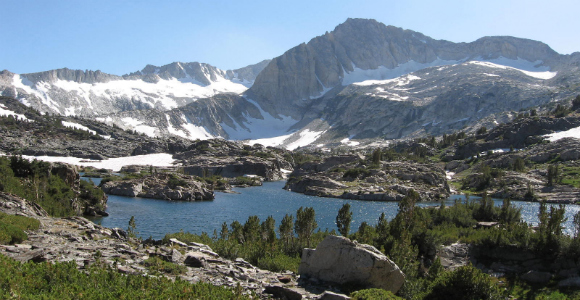
(Photo Credit: Bob Perry/Flickr)
Well, it happened. The Governor and the Legislature did what many of us thought was impossible – they agreed on a water bond proposal to replace the one on the November ballot. The new bond, known as Proposition 1, totals $7.5 billion and was authored by Assemblymember Anthony Rendon, a Democrat from south of Los Angeles. After months of debate, the new bond passed both the Senate and Assembly with only two “no” votes. The Governor signed the bill that same night, placing the new bond on the November 4 ballot for voters to decide.
 Support for the bond came gushing forth (forgive the pun) from unlikely allies – from big ag and big water to business, labor, conservation and wildlife groups. So far there have only been a few naysayers who claim the new bond is too friendly to the Governor’s tunnel proposal or might harm fisheries and other resources.
Support for the bond came gushing forth (forgive the pun) from unlikely allies – from big ag and big water to business, labor, conservation and wildlife groups. So far there have only been a few naysayers who claim the new bond is too friendly to the Governor’s tunnel proposal or might harm fisheries and other resources.
The Sierra Business Council supports the new water bond… but not without some reservation.
On the positive side – and there are a lot of positives – the bond recognizes and explicitly calls out the critical contribution areas like the Sierra and Cascade make, as “water sources that supply the entire state” (§79701(i)). This may be the first time a water bond has ever recognized the Sierra-Cascade as a place of statewide significance, which was one of SBC’s highest priorities in advocating for the region.
In addition, the watershed protection section (Chapter 6) acknowledges the economic benefits arising from healthy watersheds and the need to reduce climate change impacts on our communities and ecosystems (§79732(a)). Chapter 6 also calls for watershed restoration activities including improving forest health, reducing wildfire risk through fuel treatment, restoring mountain meadows, improving ecological function and preventing and remediating mercury contamination from legacy mines – all important Sierra-based outcomes that SBC strongly advocated for throughout the process.
The problem? Show me the money!
 Despite the language identifying the statewide significance of the Sierra – an area that is one-quarter of the state’s land base, provides 2/3 of the state’s developed water supply, and contributes up to half the inflow of fresh water to the Delta – the Sierra only received dedicated funds totaling one-half of one percent of the total bond amount. The Sierra Nevada Conservancy received $25 million for projects across its 22-county jurisdiction (§79731), and the Mountain Counties Overlay Area (from the southern tip of Lassen County to the northern part of Fresno County) got $13 million for integrated regional water management projects (§79744). If you include the Tahoe Conservancy, that percentage jumps up a measly 0.2 percent.
Despite the language identifying the statewide significance of the Sierra – an area that is one-quarter of the state’s land base, provides 2/3 of the state’s developed water supply, and contributes up to half the inflow of fresh water to the Delta – the Sierra only received dedicated funds totaling one-half of one percent of the total bond amount. The Sierra Nevada Conservancy received $25 million for projects across its 22-county jurisdiction (§79731), and the Mountain Counties Overlay Area (from the southern tip of Lassen County to the northern part of Fresno County) got $13 million for integrated regional water management projects (§79744). If you include the Tahoe Conservancy, that percentage jumps up a measly 0.2 percent.
On the face of it, $38 million may not sound bad. In fact, there was a time when conservancies and the Mountain Counties Overlay weren’t even in the bond. But compared to amounts received by other parts of the state, such as the coast, this seems like an insult. One reason we fared so poorly compared to other areas is the lack of a strong, bipartisan, cross-sectoral coalition of organizations and individuals willing to fight for Sierra-Cascade interests. As a result we’ve been unable to empower champions of the region in the legislature, agencies and administration. We need to fix that issue if we want to be relevant in future funding discussions at the state level.
SBC will be organizing an indigenous constituency to track each pot of water bond funding and weigh in on the rule-making and criteria processes to secure maximum benefit to our region. That coalition will be organized under a regional Climate Adaptation and Mitigation Partnership, similar to the ones developed in major urban areas, which we will launch at our 20th anniversary conference, “Peak Innovation: The Next 20 Years“, October 8-10 at Granlibakken. Please come join us in Tahoe City to help launch this important effort so that the Sierra-Cascade region is never put in this position again.
Kerri Timmer is government affairs director at the Sierra Business Council.

